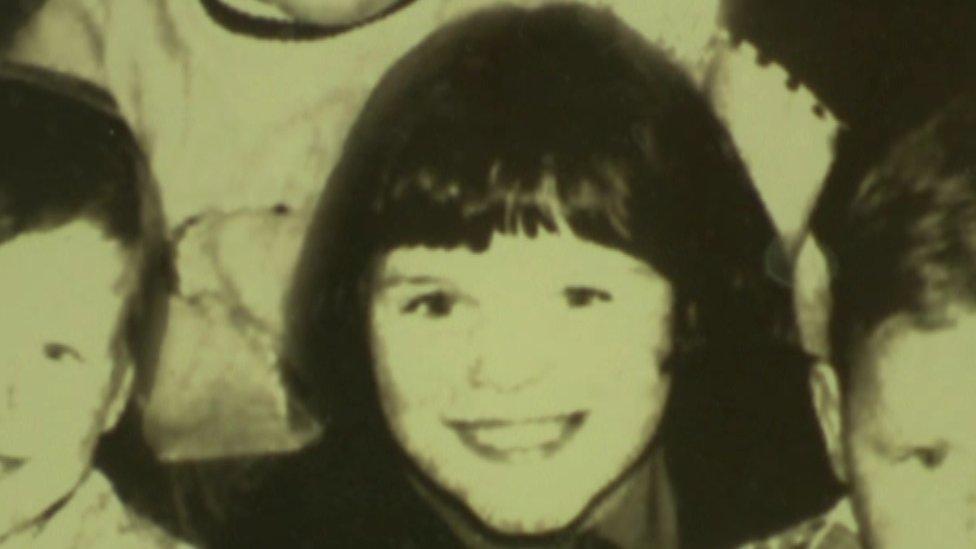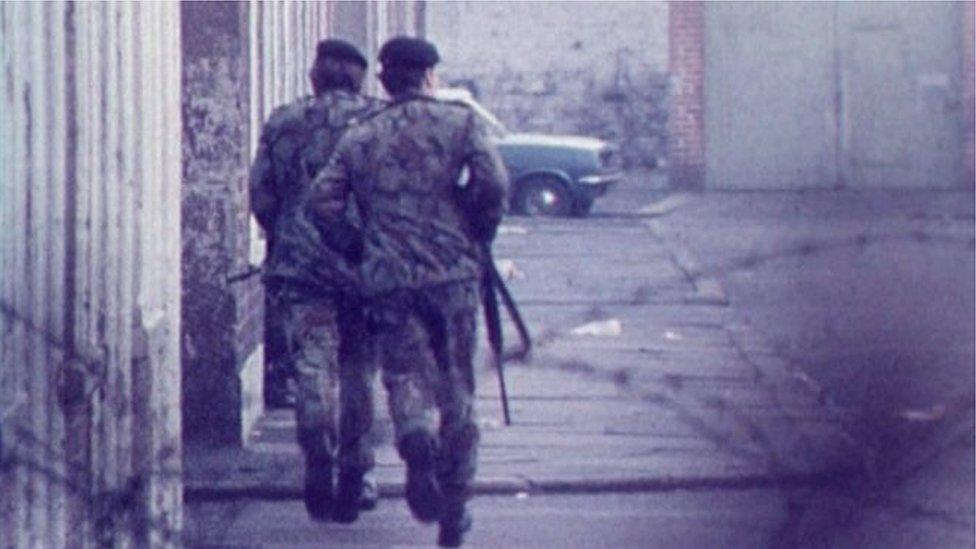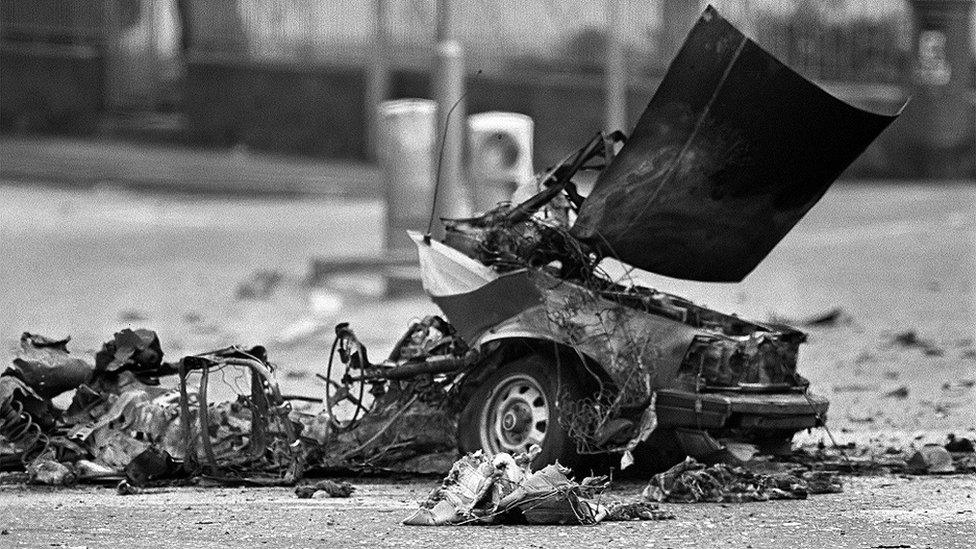Troubles legacy plans a whitewash, says victim's brother
- Published

Annette McGavigan was shot dead in Londonderry in 1971
The brother of a schoolgirl shot dead in Londonderry 50 years ago has said the government's Troubles legacy proposals are a "whitewash".
Annette McGavigan, 14, died when soldiers fired into a crowd in Derry's Bogside on 6 September 1971.
The Army said she was caught in crossfire with the IRA and who killed her is unclear, but her family maintains it was a soldier.
The controversial legacy proposals are "all wrong", her brother Martin said.
"If it was to happen anywhere else in the world there would be uproar," he told BBC Radio Foyle.
In July, Northern Ireland Secretary Brandon Lewis announced plans for a statute of limitations that would end all prosecutions related to the Troubles up to April 1998 and would apply to military veterans as well as ex-paramilitaries.
The proposals, which Prime Minister Boris Johnson said would allow Northern Ireland to "draw a line under the Troubles", would also end all legacy inquests and civil actions related to the conflict.
Mr McGavigan said he feared it could mean the person who shot his sister would continue to evade justice.

A statute of limitations would end all prosecutions in Troubles-related cases
A Ministry of Defence spokeswoman said it did not comment "on ongoing legal cases".
"We are not going to lie back and let this go, we want truth and justice," Mr McGavigan said.
The Police Service of Northern Ireland is currently investigating Annette McGavigan's killing.
"The tragic death of Annette McGavigan was the subject of a referral to the PSNI by the attorney general," a spokeswoman said.
"The case is under active investigation and it would therefore be inappropriate to comment further at this time."
'Truth, justice and dignity'
On Monday, a delegation of victims submitted a letter to Prime Minister Boris Johnson at Downing Street in protest over the planned legacy proposals.
The group included Michael Gallagher whose son Aidan was killed in the 1998 Omagh bombing.
Speaking to BBC Radio Foyle, Mr Gallagher said the families wanted "truth, justice and dignity".
"It is actually becoming more difficult for the fact that a lot of these families are coming to the latter years of their lives," he said.
"They had hoped to gain answers but it now looks like that chance has been cut off completely - it is extremely difficult."
Mr Gallagher believes the proposals would not only deny justice to thousands of families, but also "take the justice system back hundreds of years".
The delegation was also accompanied by the Ulster Unionist Peer Lord Empey.

Lord Empey says the government proposals "slams the door on hope"
The former Ulster Unionist leader says the proposals "slams the door on hope" and believes there is a lack of understanding over victims of the Troubles.
"How do we know that things could not emerge in the future that could lead to prosecutions?" he said.
"The hope is taken away from them at a very late stage of their lives and I think that is the cruellest part of the whole thing.
"I don't think people truly get the deep-seated personal sacrifice that has been involved by the people here who have actually gone through this."
A spokesman for the UK government said the proposals on legacy did not propose the prohibition of investigations into Troubles-related incidents.
"Nor do they constitute an amnesty - there will be no pardons.
"It is time that we build on the difficult but necessary compromises of the Belfast/Good Friday Agreement, and seek finally to address the past in Northern Ireland in a way that delivers for victims and survivors and helps society to move forward."
He said the government was currently engaging "with a wide range of stakeholders on the proposals".
Related topics
- Published11 August 2021

- Published20 July 2021
